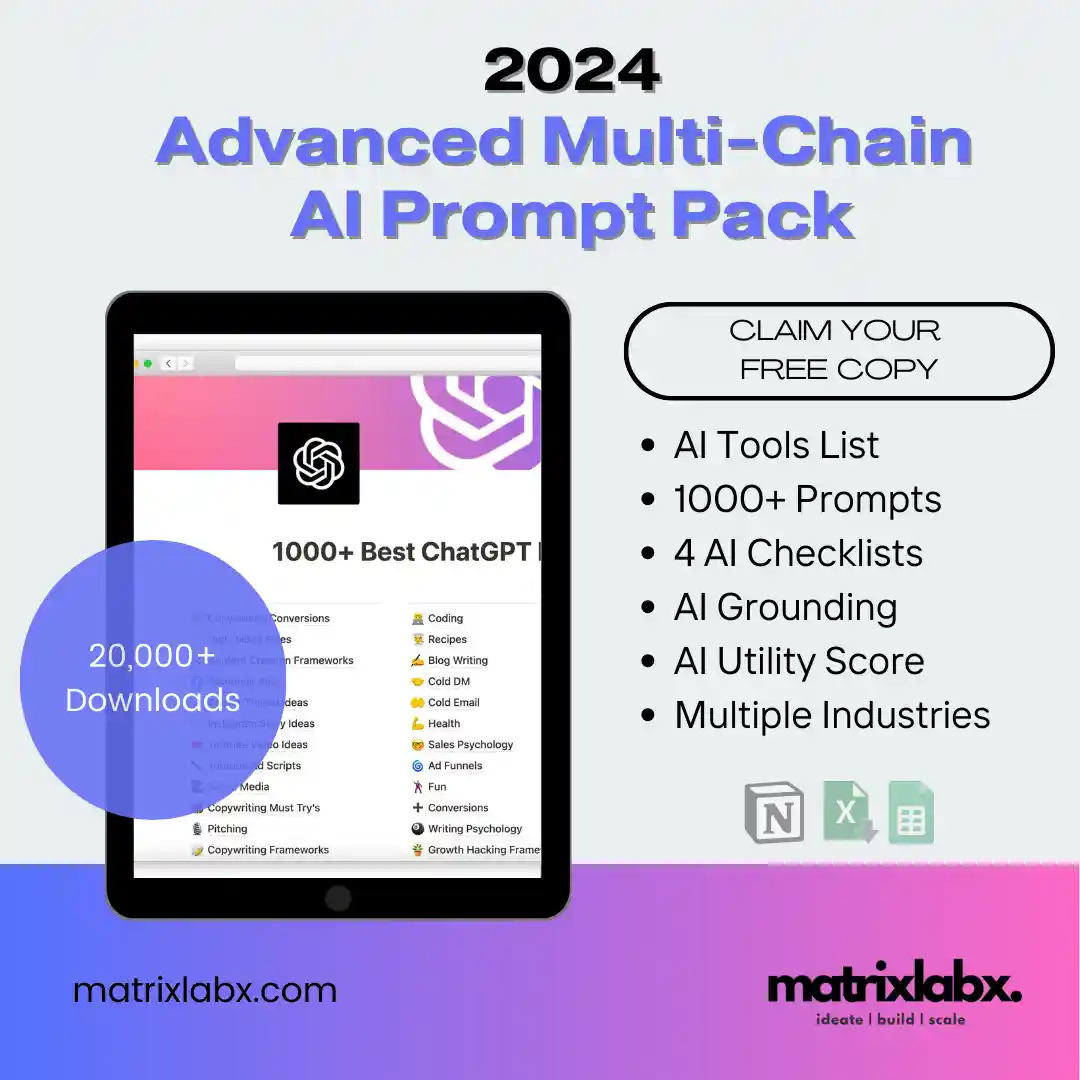Elevate Your Vermont Business with AI Powered Customer Engagement
AI Powered Customer Engagement: A Game-Changer for the Modern Marketer
As the marketing world evolves unprecedentedly, businesses constantly seek new and innovative ways to connect effectively with their customers. AI powered customer engagement has emerged as a game-changer in this dynamic landscape, offering a powerful and personalized approach to fostering customer loyalty and driving business growth.
Why AI Powered Customer Engagement Matters in 2024
The importance of AI powered customer engagement in 2024 stems from several key factors:
- Personalization at Scale: AI algorithms can analyze vast customer data to identify individual preferences and behaviors. This enables marketers to deliver highly personalized experiences across all touchpoints, ensuring each interaction feels relevant and valuable to the customer. Use customer support software with AI embedded.
- Proactive Engagement: AI can proactively identify and address customer needs before they arise. This proactive approach can significantly improve customer satisfaction and loyalty, demonstrating that the brand is truly invested in their well-being.
- Automation of Routine Tasks: AI can automate many mundane tasks that often consume marketing teams’ time and energy. This frees marketers to focus on more strategic initiatives, such as developing creative campaigns and forging deeper customer connections.
- Data-Driven Insights: AI gives marketers a wealth of data-driven insights to inform their decision-making. These insights can help marketers optimize campaigns, refine targeting strategies, and identify new growth opportunities.
Harnessing AI to Enhance Customer Engagement
To effectively leverage AI for customer engagement, marketers should focus on the following strategies:
- Customer Data Integration: Ensure that all customer data is centralized and organized for seamless analysis by AI algorithms.
- Goal-Oriented AI Deployment: Clearly define the desired outcomes of AI-powered engagement efforts, whether it’s increasing conversions, enhancing customer satisfaction, or driving brand advocacy.
- Human-AI Collaboration: Foster a collaborative environment where human marketers and AI systems work together to achieve common goals. AI can handle routine tasks, while human expertise provides a touch of empathy and personalized touch.
- Continuous Monitoring and Evaluation: Regularly monitor the performance of AI-powered engagement initiatives and adjust as needed to ensure optimal results.
AI-Powered Customer Engagement: The Road to Success
By embracing AI-powered customer engagement, marketers can unlock opportunities to connect with their audience on a deeper level, build stronger relationships, and achieve their business objectives. As AI continues to evolve, its role in marketing will only grow more significantly, empowering marketers to deliver exceptional customer experiences that drive long-term success.
Introduction to AI-powered Customer Engagement
Activate Your Brand For More Sales Today!
In today’s fast-paced digital world, customer engagement becomes the lifeline of every successful Vermont Business. Brands are seeking out new and exciting ways to retain and acquire customers. That’s where Artificial Intelligence (AI) comes into play. AI powered customer engagement has the potential to radically improve your business and take it to the next level.
Why AI Powered Customer Engagement?
AI is not just a fancy buzzword. It is a sophisticated technology that aids businesses in making smarter decisions, improving customer interactions, and driving growth. AI allows your business to gain insights into customer behavior, tailor personalized experiences, and boost customer engagement. Remember, the higher the engagement, the higher the customer retention.
Improve Customer Service with AI
Excellent customer service is the cornerstone of any successful business. AI and machine learning algorithms can analyze vast amounts of data in seconds, which humans would take hours or even days to process. This allows businesses to provide faster, more efficient customer service.
Chatbots, for example, can handle multiple customer queries simultaneously and provide instant responses. This improvement in customer service can significantly enhance customer engagement.
ChatGPT, a large language model developed by OpenAI, holds immense potential for enhancing customer service by providing personalized interactions, automating routine tasks, and generating creative solutions. Here’s how to effectively utilize ChatGPT to elevate your customer service operations:
- Personalize Customer Interactions: ChatGPT can analyze customer data to tailor interactions, addressing each customer by name and understanding their unique preferences and needs. Proactive responses based on customer history and context can foster a sense of connection and enhance satisfaction.
- Automate Routine Tasks: ChatGPT can automate repetitive tasks, such as answering frequently asked questions (FAQs), providing basic troubleshooting guidance, and processing orders or returns. This frees human agents to focus on complex issues and provide more personalized assistance.
- Generate Creative Solutions: ChatGPT can generate creative solutions to customer problems by drawing upon a vast knowledge base and understanding of language. It can suggest alternative products, provide step-by-step instructions, or offer personalized recommendations.
- Handle Multiple Languages: ChatGPT supports multiple languages, enabling seamless communication with a global customer base. It can translate customer inquiries, provide multilingual support documents, and cater to the specific needs of diverse customer segments.
- Collect and Analyze Customer Feedback: ChatGPT can analyze customer feedback from surveys, social media interactions, and support conversations to identify common pain points and areas for improvement. This feedback can inform product development, customer support strategies, and overall business decisions.
- Training and Support for Customer Support Agents: ChatGPT can provide training and support materials for customer support agents, offering guidance on handling specific issues, suggesting appropriate responses, and keeping them updated on company policies and procedures.
To effectively implement ChatGPT for customer service, consider the following steps:
- Define Clear Goals and Objectives: Clearly define the specific goals you aim to achieve with ChatGPT, whether it’s improving customer satisfaction, reducing response times, or increasing customer loyalty.
- Integrate ChatGPT with Existing Systems: Integrate ChatGPT with your existing customer support systems, such as ticketing platforms and CRM software, to ensure a seamless workflow and centralized data management.
- Provide Quality Data: Provide ChatGPT with access to high-quality, accurate data, including customer information, product knowledge base, and company policies, to ensure it provides accurate and relevant responses.
- Monitor and Evaluate Performance: Regularly monitor the performance of ChatGPT, tracking metrics such as customer satisfaction rates, resolution times, and customer feedback. Use these insights to refine your strategies and improve ChatGPT’s effectiveness.
- Foster a Human-AI Collaboration: Encourage collaboration between human customer support agents and ChatGPT, ensuring that AI is used to augment human expertise, not replace it.
- Continuously Adapt and Evolve: As AI technology advances and customer needs evolve, continuously adapt your ChatGPT implementation to stay at the forefront of customer service innovation.
By effectively utilizing ChatGPT, businesses can elevate their customer service to new heights, fostering stronger relationships, enhancing customer satisfaction, and driving long-term business success.
Personalization with AI
Everyone loves a personalized experience. AI’s ability to analyze data effectively enables businesses to understand their customers better. By analyzing browsing history, purchase behavior, and other customer data, AI can create highly personalized recommendations tailored to individual customers, thereby improving engagement.
Are Your Marketing Efforts a Shot in the Dark? Let’s Turn on the Spotlight!
Imagine having the clarity of seeing your marketing strategy from a bird’ s-eye view and understanding every nuance of your campaigns. Our comprehensive audit delves into the core of your marketing DNA, dissecting each campaign with surgical precision to identify the powerhouse strategies and weed out the underperformers.

AI-Powered Marketing
With AI’s help, businesses can move towards predictive marketing. AI algorithms can predict consumer behavior, interests, and future needs, enabling businesses to send hyper-targeted marketing messages. This results in higher engagement rates and conversion rates.
Aligning AI-Powered Marketing with Customer Support for a Cohesive Customer Experience
In today’s competitive landscape, businesses increasingly use AI-powered marketing solutions to enhance customer engagement, personalize interactions, and drive business growth. However, to truly maximize the benefits of AI in marketing, it’s crucial to align these efforts with customer support strategies. Businesses can create a cohesive customer experience that fosters loyalty and drives positive outcomes by fostering a seamless integration between AI-powered marketing and customer support.
Key Benefits of Aligning AI-Powered Marketing with Customer Support
- Personalized Customer Journeys: AI can analyze customer data to identify preferences and behaviors, enabling marketers to deliver personalized marketing campaigns. Customer support can leverage this information to provide tailored assistance, ensuring a consistent and personalized experience across all touchpoints.
- Proactive Issue Resolution: AI can identify potential customer issues before they escalate, allowing marketers to address them proactively through targeted messaging or support interventions. This proactive approach can minimize churn and enhance customer satisfaction.
- Enhanced Customer Feedback Analysis: AI can analyze customer feedback from surveys and social media interactions and support conversations to identify common pain points and areas for improvement. Customer support can use these insights to refine their processes and improve customer satisfaction.
- Improved Customer Support Efficiency: AI can automate routine tasks such as answering FAQs and providing basic troubleshooting, freeing customer support representatives to focus on complex issues and provide more personalized assistance.
- Unified Customer Data Repository: A centralized customer data repository ensures that marketing and customer support teams access the same information. This enables a more holistic understanding of each customer’s needs and preferences.
Strategies for Aligning AI-Powered Marketing with Customer Support
- Establish Clear Communication Channels: Create open communication channels between marketing and customer support teams to foster collaboration and knowledge sharing. Regular meetings and shared dashboards can facilitate this alignment.
- Define Shared Customer Journey Goals: Align marketing and customer support teams on common customer journey goals, ensuring that both departments work towards a unified customer experience.
- Implement Shared Customer Data Platform: Invest in a shared customer data platform that provides marketing and customer support teams with a single source of truth for customer data.
- Leverage AI for Joint Insights: Utilize AI capabilities to analyze customer data across marketing and customer support interactions, identifying patterns and insights that can inform both departments.
- Incorporate Customer Support Feedback into Marketing: Integrate customer support feedback into marketing campaigns to ensure messaging is consistent with customer expectations and pain points.
- Provide Customer Support with AI Tools: Equip customer support teams with AI-powered tools to enhance their capabilities, such as chatbots for handling routine inquiries and sentiment analysis tools to understand customer emotions.
- Continuously Monitor and Evaluate Alignment: Regularly monitor the alignment between AI-powered marketing and customer support efforts, making adjustments to optimize customer experience and achieve shared goals.
By aligning AI-powered marketing with customer support, businesses can create a unified customer experience that fosters loyalty, drives business growth, and establishes a competitive edge in the digital age.

AI Helps in Decision Making
AI’s ability to analyze extensive data can generate valuable insights that aid decision-making. These insights can help businesses understand the effectiveness of their marketing efforts, customer retention rates, and areas needing improvement, thereby informing strategic decisions that boost customer engagement.
AI-Powered Decision-Making: A Game-Changer for Businesses of All Sizes
In today’s data-driven world, businesses increasingly turn to artificial intelligence (AI) to make informed decisions that drive growth and success. AI algorithms can analyze vast amounts of data to identify patterns, trends, and insights that would be difficult or impossible for humans to detect.
Uncovering hidden insights empowers businesses to make better decisions across all operations, from product development and marketing to customer service and financial planning.
How AI Enhances Decision-Making
AI offers several key advantages that enhance decision-making capabilities:
- Unbiased Analysis: AI algorithms are free from human biases and subjectivity, ensuring that decisions are based on objective data analysis rather than personal opinions or preconceived notions.
- Handling Complex Data: AI can process and analyze vast amounts of data, including unstructured data such as text and images, which would be too time-consuming or difficult for humans to handle manually.
- Identifying Hidden Patterns: AI can identify subtle patterns and correlations in data that may not be apparent to humans, leading to new insights and opportunities.
- Predictive Modeling: AI algorithms can build predictive models that forecast future events or trends, enabling businesses to make proactive decisions and prepare for potential risks or opportunities.
Benefits of AI-Powered Decision-Making
AI-powered decision-making can bring a multitude of benefits to businesses of all sizes:
- Enhanced Resource Allocation: AI can help businesses allocate resources more effectively by identifying areas of high potential return and optimizing spending based on data-driven insights.
- Improved Product Development: AI can analyze customer data and market trends to inform product development decisions, ensuring that new products meet customer needs and preferences.
- Targeted Marketing Campaigns: AI can identify the most receptive customer segments for specific marketing campaigns, maximizing the effectiveness of marketing efforts and reducing wasted spending.
- Personalized Customer Experiences: AI can analyze customer data to deliver personalized recommendations, offers, and support, enhancing customer satisfaction and loyalty.
- Reduced Operational Costs: AI can automate routine tasks and processes, allowing employees to focus on more strategic initiatives and reducing operational costs.
- Mitigating Risks and Seizing Opportunities: AI can identify potential and opportunities based on data analysis, enabling businesses to take proactive measures to mitigate risks and capitalize on emerging opportunities.
Implementing AI-Powered Decision-Making

To successfully implement AI-powered decision-making, businesses should follow these key steps:
- Define Clear Goals: Clearly define the business objectives AI-powered decision-making will support, ensuring that AI initiatives align with overall business goals.
- Identify Data Sources: Determine the relevant data sources that will feed into AI algorithms, ensuring that data is accurate, complete, and consistent.
- Select Appropriate AI Tools: Choose the right AI tools and algorithms suited to the specific data and decision-making tasks.
- Build AI Models: Develop and train AI models using the selected data and algorithms, ensuring that models are regularly updated and evaluated for performance.
- Integrate AI into Decision-Making Processes: Embed AI-generated insights into existing decision-making processes, ensuring that AI is used to supplement, not replace, human judgment.
- Foster a Culture of Data-Driven Decision-Making: Cultivate a company culture that values data-driven decision-making and encourages employees to use AI insights to inform their choices.
AI-powered decision-making is no longer a futuristic concept; it is a reality transforming businesses of all sizes. By embracing AI, businesses can gain a competitive edge, improve efficiency, enhance customer satisfaction, and achieve long-term business goals. As AI technology continues to evolve, its role in decision-making will only grow more significant, empowering businesses to make even smarter and more impactful choices that will drive their success in the future.
Conclusion
If utilized properly, AI can be more than just a tool. It can catalyze change, facilitating your Vermont business’s transformation journey. AI powered customer engagement can propel your business forward, ensuring you stay ahead in the competitive Vermont business landscape. Your business can enjoy enhanced customer service, improved decision-making capabilities, and personalized marketing messages.
Embracing AI is no longer an option; surviving in this digitally-driven business world is necessary. So, let’s bring this revolutionary technology on board and elevate your business to unparalleled heights.

